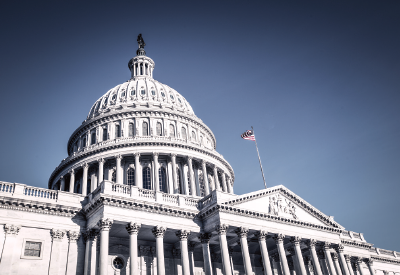CBO Says Millions of People Could Lose Coverage Under AHCA
Abstract
The House of Representatives rushed through passage of the American Health Care Act before the extent of its impact was known.
If the replacement bill for the Affordable Care Act (ACA) that narrowly passed the U.S. House of Representatives last month becomes law, it will leave some 14 million more people uninsured next year than under current law and 23 million more in 2026.

These were among the findings of the Congressional Budget Office (CBO), the nonpartisan federal agency that analyzes pending legislation for economic and other impacts.
The House passed the American Health Care Act (AHCA) May 4 by a vote of 217-213, before that version of the bill had been scored by the CBO. The bill now moves on to the Senate, where it is expected to undergo significant changes before it comes up for a vote.
“The CBO analysis may cause senators to be more careful in how they draft their version of the bill,” said Ariel Gonzalez, J.D., APA’s chief of government affairs. “It’s our hope the Senate throws away the House-passed AHCA and starts over with a bill that protects access to mental health and substance use treatment services. If the Senate drafts a bill that is materially different from the House version, it could be difficult to pass in any sort of conference between the two houses. Such a result could be considered a political win.”
Urge Your Senators to Start Over on AHCA
APA members are urged to contact their senators to express opposition to the AHCA and instruct the Senate to set aside the House bill and start over on new legislation that does not put at risk health care for people with mental health/substance use disorders. To make such communication quick and easy, visit the APA Advocacy Center.
APA has been urging senators to draft a bipartisan bill of their own. Among the issues of concern to APA are how the House version of the AHCA would impact people with mental illness and substance use disorders. An estimated 1.3 million Americans with serious mental illness and 2.8 million Americans with substance use disorders gained coverage with the expansion of Medicaid under the Affordable Care Act.
According to the CBO report, in 2026, “an estimated 51 million people under age 65 would be uninsured, compared with 28 million who would lack insurance that year under current law. Under the legislation, a few million of those people would use tax credits to purchase policies that would not cover major medical risks.”
Among the issues most important to APA are that essential health benefits—which include mental health/substance use treatment—continue to be covered and that patients with pre-existing conditions are able to afford health care coverage.
“Congress made much progress over the past three years, culminating in the passage last year of the bipartisan, bicameral 21st Century Cures Act,” said APA CEO and Medical Director Saul Levin, M.D., M.P.A. “This current bill reverses those gains. We stand ready to work with both parties to ensure adequate health care for all Americans.”
APA has offered the following recommendations to lawmakers:
“As the Senate debates reforms to the health system, services for people with mental health and substance use disorders—and their families—must be maintained. APA urges the Senate to reject the American Health Care Act in favor of bipartisan legislation,” said APA in a statement released after the CBO score was announced. ■



